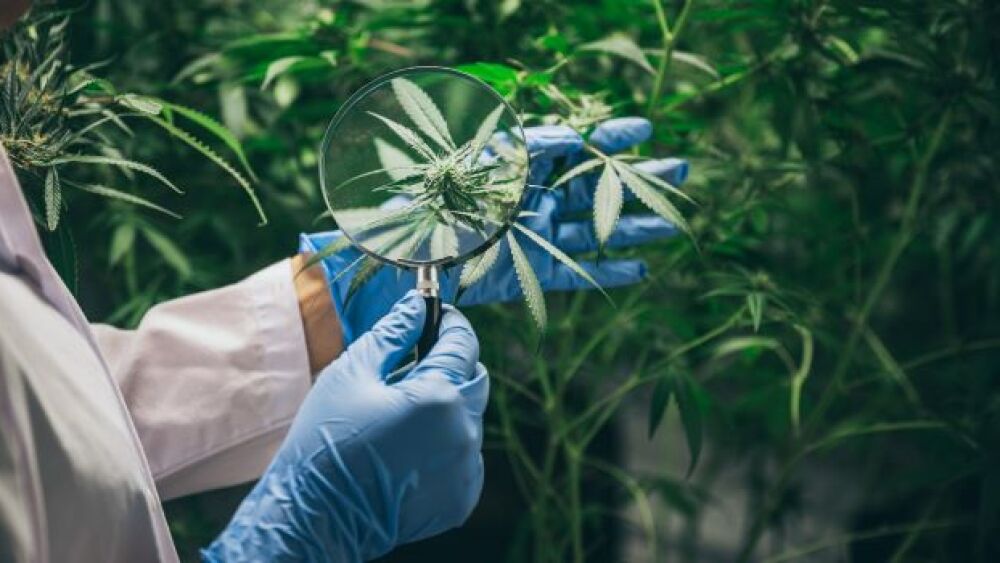Senator Charles Schumer unveiled draft legislation that would decriminalize cannabis and expunge federal sentences associated with the drug, but it likely faces an uphill battle.
Although recreational use and sale of marijuana are legal in 19 states, Washington, DC, and Guam, it is still not permitted under federal law. Some sort of medical marijuana is allowed in 37 states.
Senate Majority Leader Charles Schumer unveiled draft legislation on July 14 that would decriminalize cannabis and expunge federal sentences associated with the drug, but it likely faces an uphill battle. More broad research into and sale of medical cannabis-associated drugs is expected to drop federal laws against it, since the federal laws restrict business loans and create additional sets of regulatory hurdles.
In 2018, the U.S. Food and Drug Administration (FDA) approved a single cannabis-derived drug, GW Pharmaceuticals’ Epidiolex (cannabidiol), for seizures associated with Lennox-Gastaut syndrome (LGS) or Draven syndrome, as well as Tuberous Sclerosis Complex (TSC). The agency has also approved three synthetic cannabis-related drugs: Marinol (dronabinol), Syndros (dronabinol), and Cesamet (nabilone), all for chemotherapy-induced nausea and vomiting.
The agency states on their website: “Importantly, FDA has not approved any other cannabis, cannabis-derived, or cannabidiol (CBD) products currently on the market.”
In February 2021, Jazz Pharmaceuticals acquired GW for $7.2 billion. Bruce Cozadd, chairman and chief executive officer of Jazz, said at the time, “We are excited to add GW’s industry-leading cannabinoid platform, innovative pipeline and products, which will strengthen and broaden our neuroscience portfolio, further diversify our revenue and drive sustainable, long-term value creation opportunities.”
GW’s technology platform and pipeline focus on cannabinoid products, including nabiximols for spasticity associated with multiple sclerosis and spinal cord injury, as well as other candidates for autism and schizophrenia.
Recent reports indicate that venture capital is investing heavily into psychedelics, which don’t necessarily involve cannabinoids, increasing from under $100 million in 2019 to $346 million in 2020 and so far, $329 million in 2021. Other companies focused on the space are San Diego-based Tryp Therapeutics, COMPASS Pathways, Mind Medicine, and ATAI Life Sciences. Tryp, for example, has a Psilocybin-for-Neuropsychiatric Disorders (PFN) program that includes TRP-8802, in Phase IIa studies for eating disorders, fibromyalgia, and chronic pain disorders.
Only a decade ago, this area of drug research was forbidden territory in the U.S. The biopharma industry is increasingly looking at ways to exploit the endocannabinoid system, which has several components: two G-protein-coupled receptors (cannabinoid receptor 1, CB1R) and cannabinoid receptor 2 (CB2R), and their natural ligands anandamide and 2-arachidonoylglycerol.
There are technical challenges. Working with plant-based cannabinoids often leaves impurities, such as THC, which is the chemical that imparts the “high” associated with marijuana. That’s why companies working in this area often create synthetic analogs of biologically active phytocannabinoids. Another reason is patents since unmodified THC and CBD molecules can’t be patented, but unique synthetic formulations can be.
ClinicalTrials.gov reports more than 1,100 studies related to cannabis, some of which are still recruiting and others completed.
Schedule I controlled substances are drugs that have no currently accepted medical use in the U.S. and include compounds such as heroin, LSD, marijuana, peyote and others.
In addition to current legislative efforts, which are more focused on the recreational use of marijuana, House lawmakers are working to make research on Schedule I drugs easier in the Department of Health and Human Services appropriations bill. The House Appropriations Committee will likely approve the bill today after a subcommittee advanced it on Monday, July 12.





